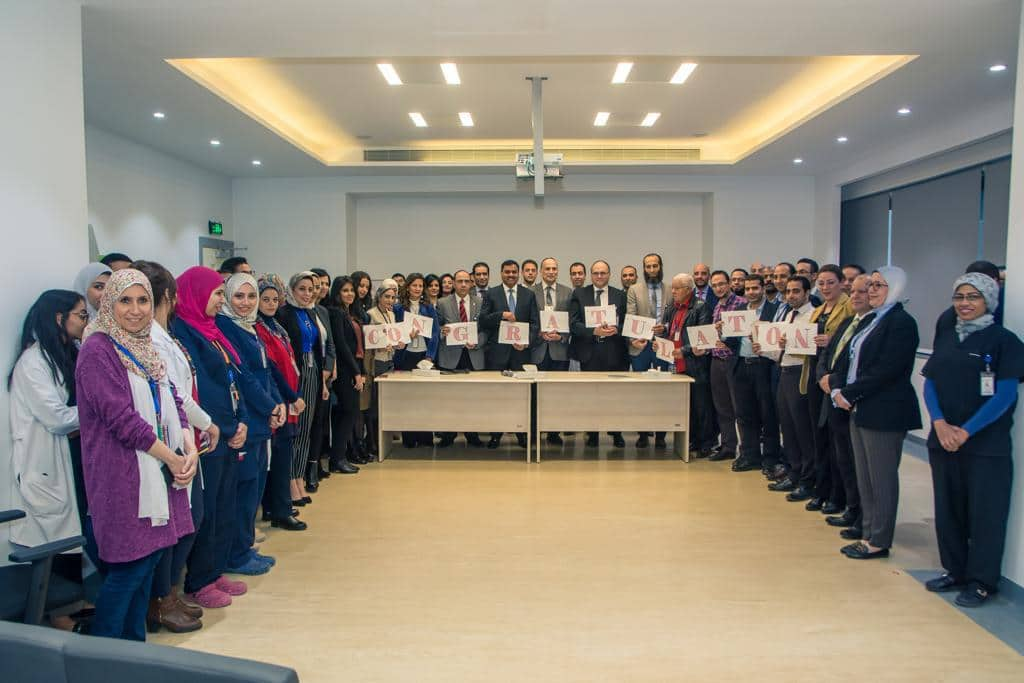By – Mohamed Kamal
As-Salam International Hospital has been granted clinical excellence certificate from the Joint Commission International for the chronic Obstructive pulmonary disease and Acute Myocardial infarction programs, Egypt now becomes the third country in the world and the first in the Middle East to obtain this certificate for Chronic obstructive pulmonary disease by complying to a number of international standards
The Group and hospital’s CEO, Mr. Neeraj Mishra pointed out that the clinical care program certificate guarantees the provision of high-quality medical care to patients in accordance with international standards for patient safety, which ensures the achievement of the highest rates of success clinical outcomes.
He pointed out that the Joint Commission International body for Accreditation of Health Facilities is reviewing and following up the performance of the medical facility to verify its commitment to the latest treatment methods, pointing out that this certificate was obtained as a result of a continuous resilient effort by the hospital management team always seeking to apply the latest scientific and technical standards in providing distinguished top notch medical care For patients
Dr. Nahla Badr, Director of Quality and Risk Management at As Salam International Hospital explained that one of the most important strategic goals in the hospital adding to patient safety and continious quality improvement, is achieving high efficiency and effectiveness in the treatment results for our patients in as-Salam International Hospital, explaining that the hospital engages the patient and his family in the therapeutic decisions, as the educational instructions provided to the patient are an important cornerstone for recovery and self support
Dr. Nahla Badr indicated that there are multiple advantages resulting from obtaining a certificate of excellence for the hospital, the most important of which is to upgrade the level of medical training and scientific practices to improve the clinical service and work flow in addition to working to build community confidence in the organization that depends on the quality and safety of the medical service provided
Professor Dr. Hossam Hosni added that the chronic obstructive pulmonary disease is a common preventable and treatable disease, characterized by shortness of breath that is usually caused by exposure to harmful particles or gases emitted. Chronic obstructive pulmonary disease is associated with chronic inflammation of the airways and lungs, often exacerbation of symptoms in patients with chronic obstructive pulmonary disease, is caused by infection with bacteria, viruses or environmental pollutants
Chronic obstructive pulmonary disease is estimated to affect 384 million cases globally in 2010. Considering the increase in smoking prevalence in developing countries, and an increasing population in high-income countries, the incidence of chronic obstructive pulmonary disease is expected to increase over the next thirty years.
The use of tobacco products in Egypt is widespread and is considered one of the main causes of obstructive pulmonary disease. It is estimated that about twenty percent of the population uses tobacco products every day. Cigarettes are the most common form of tobacco consumption in Egypt, with an estimated 20 billion cigarettes being smoked annually. After cigarettes, water pipe hookahs are the most common tobacco and the statistical analysis of the prevalence of chronic obstructive disease in Egypt showed that 3 million of the Egyptian population suffer from chronic obstructive pulmonary disease in various studies.
The mission of the Obstructive Pulmonary disease Program at As Salam International Hospital is to provide exemplary care that is consistent with current evidence-based best practices for treating exacerbations of chronic obstructive pulmonary disease and reducing the negative effects of existing exacerbations
About the Acute Myocardial Infarction program, Prof. Hossam Mansour pointed out that coronary heart disease is the main cause of morbidity and mortality around the world and that the most common form is myocardial infarction. It is responsible for more than 15% of deaths every year.
Modifiable risk factors cause more than 90% of the risk of developing severe heart attacks such as high fats, smoking, psychological and social pressures, diabetes, high blood pressure, obesity, alcohol consumption, physical inactivity, and a low diet in fruits and vegetables
The acute Myocardial Infarction program provides exemplary care that is consistent with best evidence-based practices derived from the European Society of Cardiology guidelines for dealing with myocardial infarction in a timely manner by a multidisciplinary team.









